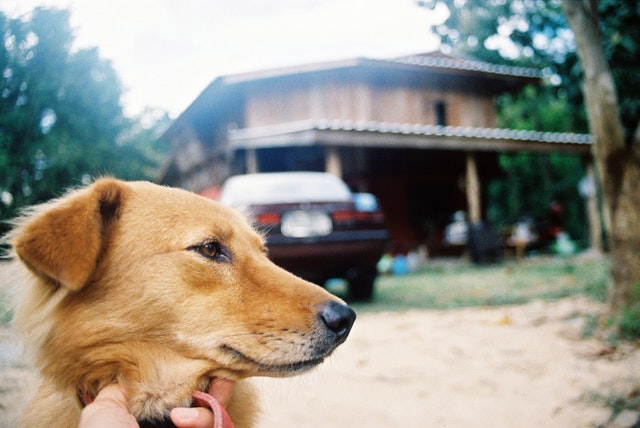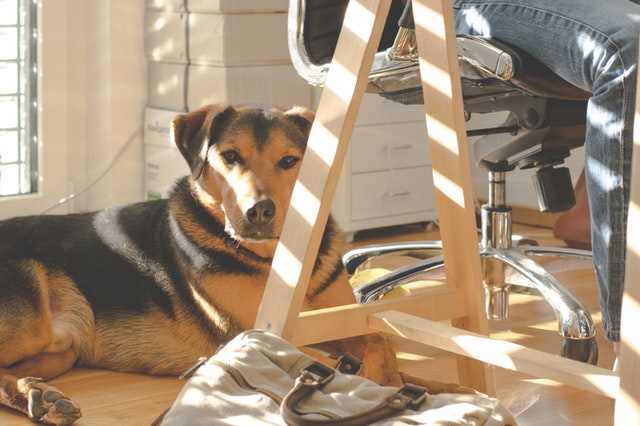
With the images of dogs wearing face masks popping in our social streams, and countless WhatsApp threads giving wind to miracle cures of every kind – many pet owners were left wondering – can dogs get coronavirus?
It is extremely rare for dogs, or any pet, to contract COVID-19. It’s even less likely a dog will transmit SARS-CoV-2 to a person or other animal. There is a slight risk of an infected pet parent spreading COVID-19 to a pet, so keep anyone infected away from all dogs, cats and people until the virus has passed.
In early March 2020, the World Health Organization declared the COVID-19 novel coronavirus as a global pandemic. The ensuing panic over the spread of the virus saw people and policymakers resort to all sorts of measures — sealing borders, hoarding toilet paper, flocking to the internet (and rumour mills mulling probable solutions), etc.
Many people in worst-hit towns of China abandoned their pets or were forced to do so as Covid-19 cases grew in numbers. Left to their own sans food to last for an extended run, many fear that they would be starving.
To make matters worse, counties in Hunan are terminating pets found in public places. Thankfully, there are volunteer networks and NGOs working to rescue the pets to safety.
Can dogs get coronavirus?
Media outlets and people have used “coronavirus” and “COVID-19″ interchangeably but it isn’t one and the same. Coronavirus isn’t something new but refers to a group of viruses that are known to cause respiratory issues ― like the common cold ― to more serious symptoms that can lead to hospitalisation, like lung problems.
COVID-19 is a ‘novel coronavirus’ meaning it’s a new type of coronavirus that was not previously known or understood by health experts.

“While there has been one instance of a dog being infected in Hong Kong, to date, there is no evidence that a dog, cat or any pet can transmit COVID-19. COVID-19 is mainly spread through droplets produced when an infected person coughs, sneezes, or speaks. To protect yourself, clean your hands frequently and thoroughly.”
World Health Organization
The 17-year-old Pomeranian in Hong Kong had since tested negative after quarantine and the authorities believe the dog contracted “low-level infection” COVID-19 from its owner, but there is “no evidence” pets transmit the virus to humans.
How to Protect yourself against COVID-19
Follow basic hygienic precautions like:
- Wash your hands often with soap and water or a hand sanitizer with at least 60% alcohol.
- Avoid touching your eyes, nose, and mouth with unwashed hands.
- Keep social distancing.
- Stay home when you are sick or have a fever.
- Cover your cough or sneeze with a tissue, then throw the tissue in the trash.
- Clean and disinfect frequently touched objects and surfaces. Yes, that work table too.
Working from home? Here are some tips to groom your dog at home
Covid-19 pet care tips
There is no reason to change daily routines with pets while people remain healthy and symptom-free. Dogs are our friends through thick and thin, and we’ll see through the crisis together.
- Look out for the exercise regimen of your dogs – if you are in a relatively safer area, take your dog out, practise social distancing during your walks. In case, you are in a high alert area, please try indoor activities to channel your pet’s energy.
- Please keep your pets under your watch during the walks to enable social distancing when in public.
- Try avoiding all non-critical vet trips. For all non-urgent health issues, please see if calls or online consultation may help.
- Prepare for the worst – If in the god-forbidden scenario you get hold of the dreaded disease, what happens to your pet? Scary, right? Please make the necessary preparations – back up options – caretakers, extended family, food and exercise needs of your pet.

Should my dog wear a mask?
Experts believe that dogs do not need a face mask to protect themselves against the novel coronavirus COVID-19. If you are still concerned or notice a change in your dog’s health, speak to a veterinarian.
How dogs are helping to detect COVID-19?
Researchers at the National Veterinary School of Alfort, outside Paris, trained eight Belgian Malinois shepherd dogs to identify people infected with the coronavirus. They used odour samples taken from the armpits of more than 360 people, who were both positive and negative for the virus.
The dogs had a 95% success rate in early trials.
The researchers said introducing dog detection was a cheap, quick and reliable “tool”.
Origins of Covid-19: New Research
Since the outbreak of Covid-19, there has been intense speculation regarding the origin of the virus. While the exact source of the virus remains unclear, new evidence has emerged suggesting that conditions at Wuhan animal market may have played a crucial role in the virus’s spread.
Scientists have recently analysed genetic material collected from the Wuhan market in the early days of the pandemic. The analysis has revealed raccoon dog DNA that was found to be combined with the virus. Raccoon dogs are animals that are known to have been sold at the market. Although they belong to the dog family, they are more closely related to foxes.
It is important to note that this analysis has not yet been peer-reviewed. However, if the findings are verified, it would provide compelling evidence to support the theory that the virus originated from animals.
Here are some movies, documentaries, and books that you can enjoy with your dog while you work from home.
So stay safe, wash your hands, and pet your dog. And don’t fall prey to rumours. Did I say Never and I mean EVER abandon your dog, cat or other pets because of coronavirus fear or for any other reason for that matter.

